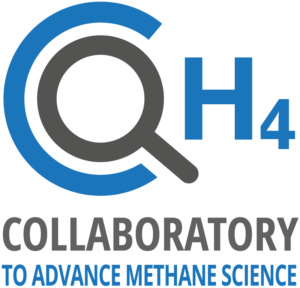 GTI serves as the program administrator for the Collaboratory for Advancing Methane Science (CAMS), an industry-led research collaboration dedicated to improving the understanding of methane science by evaluating new tools and technologies to detect, measure, and quantify methane emissions. All results are reviewed by an external Scientific Advisory Board comprised of independent leaders in relevant research fields.
GTI serves as the program administrator for the Collaboratory for Advancing Methane Science (CAMS), an industry-led research collaboration dedicated to improving the understanding of methane science by evaluating new tools and technologies to detect, measure, and quantify methane emissions. All results are reviewed by an external Scientific Advisory Board comprised of independent leaders in relevant research fields.
CAMS has undertaken methane studies and funded new research in a variety of areas in the methane space:
- A Permian Aerial Emissions Survey by Equipment Type (read the research here)
- Emissions Characterization of LNG Offshore Vessels (read the research here)
- Project Astra West Texas Methane Showdown
- Project Astra Digital Twin
- Methane Emission Estimation Tool, or MEET (review the published research here or download the standalone Emissions Composition Tool)
- Review of Satellite Instruments to Identify and Quantify Methane Emissions (read the research here)
- Analysis of Underestimates in Current Bottom-Up Methodologies for Emissions Inventories (read the research here)
CAMS Mission and Objectives
CAMS mission and objectives are to leverage finite resources to obtain real progress in terms of scientific results and actionable data sets to inform business strategy; to produce sound, transparent data and analysis to inform emissions reduction efforts, regulations, and policy development; and to publish study results in peer-reviewed scientific journals and engage in communications initiatives to build public awareness of our results and conclusions to establish CAMS as a thought leader.
The consortium is comprised of leading energy companies Chevron, ExxonMobil, and Pioneer Natural Resources.
Learn More
Contact the energy experts today
